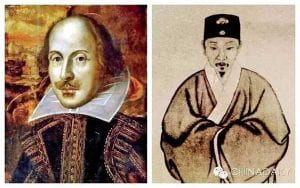 Cultural memory is actively constructed through embodied and political performances. Tang Xianzu and William Shakespeare, two “national poets” of unequal global stature, have recently become vehicles for British and Chinese cultural diplomacy and exchange during their quatercentenary in 2016. The culture of commemoration is a key factor in Tang’s and Shakespeare’s positions within world theatre. Performances of commemoration take a wide range of approaches from grass-root events to government-sponsored festivals. With a comparative scope that explores the afterlives of the two dramatists, this cluster of essays examines commemorative practices, the dynamics of artistic fame, comparability of different dramatic traditions, and transformations of performance styles in socio-historical contexts.
Cultural memory is actively constructed through embodied and political performances. Tang Xianzu and William Shakespeare, two “national poets” of unequal global stature, have recently become vehicles for British and Chinese cultural diplomacy and exchange during their quatercentenary in 2016. The culture of commemoration is a key factor in Tang’s and Shakespeare’s positions within world theatre. Performances of commemoration take a wide range of approaches from grass-root events to government-sponsored festivals. With a comparative scope that explores the afterlives of the two dramatists, this cluster of essays examines commemorative practices, the dynamics of artistic fame, comparability of different dramatic traditions, and transformations of performance styles in socio-historical contexts.
One of the reasons why there is a flurry of commemorative activities is that 2014 marked the 450th anniversary of Shakespeare’s birth, and 2016 marked the quatercentenary of the death of not only Shakespeare but also Tang Xianzu and Miguel de Cervantes. Among the most prominent strands of commemoration are activities linking Shakespeare and Tang. The rediscovery and marketing of national poets becomes culturally urgent and politically expedient. The exchange value of Tang and Shakespeare is reflected in uses of their works and motifs in appropriations, cultural diplomacy, and venues where nation states project soft power. In the post-imperial and post-colonial age, the rise of the modern nation depends all the more on soft power and cultural diplomacy. The opening and closing ceremonies of the Beijing and London Olympics in 2008 and 2012 are recent examples of how nation states construct and market national cultures to international communities.
Excerpted from Alexa Alice Joubin's "Performing Commemoration: The Cultural Politics of Locating Tang Xianzu and Shakespeare." Asian Theatre Journal 36.2 (Fall 2019): 275-280
Full text freely available online
